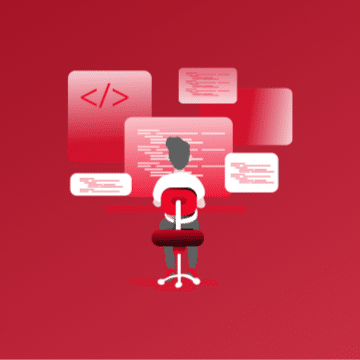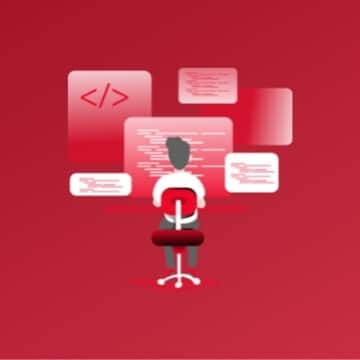Use our template to create a compelling and comprehensive Cloud Architect job description to attract top talent.
In today’s digital landscape, the demand for skilled Cloud Architects is higher than ever as organizations increasingly rely on cloud computing to drive innovation and streamline operations. To meet this demand and attract top talent, it’s crucial to craft a job description that not only highlights the key responsibilities and requirements of the role but also showcases the exciting opportunities and growth potential within your organization.
Find your next assignment on our freelance and permanent IT recruitment platform, or join Mindquest so you don’t miss out on any job opportunity!

Understanding the Role of a Cloud Architect
Before diving into crafting the job description, let’s take a closer look at what it means to be a Cloud Architect. A Cloud Architect is a pivotal role within an organization’s IT infrastructure, responsible for designing, implementing, and managing cloud solutions that align with the company’s strategic objectives. They play a crucial role in evaluating cloud technologies, developing robust cloud strategies, and ensuring the seamless integration and operation of cloud systems.
Also read our article about IT Infrastructure: components, job profiles, and best practices
Key Responsibilities of a Cloud Architect

When outlining the responsibilities of a Cloud Architect in your job description, it’s essential to provide a clear and comprehensive overview of the role’s core duties. This may include:
- Developing and implementing cloud strategies tailored to the organization’s needs.
- Evaluating and selecting cloud providers, services, and technologies.
- Designing and optimizing cloud infrastructure, including servers, storage, and network components.
- Collaborating with cross-functional teams to ensure the security, scalability, and performance of cloud systems.
- Providing technical guidance and support to resolve cloud-related issues and challenges.
- Staying abreast of emerging cloud trends and technologies to drive innovation and continuous improvement.
Essential Skills and Qualifications

In addition to outlining the responsibilities, it’s important to clearly define the skills and qualifications required for the role. This may include:
- Proven experience as a Cloud Architect or similar role, with a strong understanding of cloud computing technologies and best practices.
- Excellent communication and interpersonal skills, with the ability to effectively collaborate with stakeholders at all levels of the organization.
- Proficiency in cloud platforms such as AWS, Azure, or Google Cloud, along with relevant certifications (e.g., AWS Certified Solutions Architect, Microsoft Certified: Azure Solutions Architect).
- Strong problem-solving and analytical abilities, with a focus on delivering innovative and scalable cloud solutions.
- A proactive and results-driven mindset, with a passion for staying ahead of the curve in a rapidly evolving technology landscape.
Also discover the 3 cloud specialists companies will chase
Salary Expectation

The salary range for Cloud Architects varies depending on factors such as experience, location, and the size of the organization. On average, Cloud Architects can expect to earn between €70,000 to €80,000. 0 per year in the Europe However, salaries may exceed this range for candidates with extensive experience and specialized skills.
Are you looking for IT mission opportunities in the Tech and IT sectors on a freelance or permanent basis? Mindquest can help you find your next IT mission opportunity. Find your next mission by browsing our freelance and permanent vacancies available on our digital recruitment platform.











